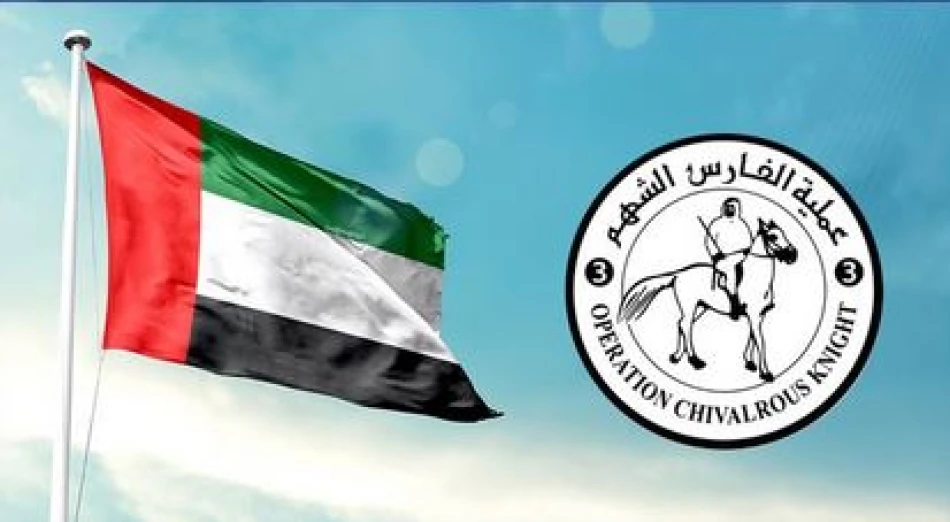
UAE Executes 70th Aerial Humanitarian Airdrop to Support Gaza Strip
UAE Completes 70th Gaza Airdrop in Massive Humanitarian Campaign
The United Arab Emirates has conducted its 70th airdrop of humanitarian aid to Gaza, delivering over 3,940 tons of essential supplies through its "Birds of Goodness" operation. This sustained effort, coordinated with Jordan and European partners, demonstrates how Gulf states are filling critical gaps in international humanitarian response while navigating complex regional dynamics.
Unprecedented Scale of Gulf-Led Relief Operations
The latest airdrop, part of the broader "Noble Knight 3" operation, carried essential food supplies prepared with support from Emirati charitable organizations. The UAE's collaboration with Jordan, Germany, Italy, Belgium, and France represents a sophisticated multinational approach to crisis response that bypasses traditional diplomatic bottlenecks.
The 3,940-ton milestone places the UAE among the most significant humanitarian contributors to Gaza, rivaling established international aid organizations in both scale and consistency. This volume of aid delivery through airdrops alone represents a logistical achievement that few nations could sustain over extended periods.
Strategic Implications for Regional Leadership
Gulf States as Humanitarian Powerhouses
The UAE's sustained Gaza operations reflect a broader trend of Gulf states leveraging their wealth and strategic positioning to assume leadership roles in crisis response. Unlike traditional Western aid models that often face bureaucratic delays, the UAE's approach demonstrates the agility possible when humanitarian imperatives align with strategic interests.
This mirrors similar initiatives by other Gulf Cooperation Council members, but the UAE's coordination with European partners sets a precedent for how middle powers can orchestrate complex international operations without relying on established multilateral frameworks.
Diplomatic Balancing Act
The UAE's humanitarian focus allows it to maintain engagement with Palestinian populations while preserving its Abraham Accords relationship with Israel. This careful balance positions the Emirates as a constructive regional actor capable of addressing humanitarian needs without directly challenging existing political arrangements.
Operational Excellence in Crisis Response
Conducting 70 successful airdrops requires substantial logistical capabilities, from aircraft maintenance and crew coordination to supply chain management and international airspace negotiations. The UAE's ability to sustain this tempo suggests significant investment in humanitarian infrastructure that could serve as a model for other emerging donors.
The partnership with Jordan provides crucial geographical advantages, as Jordanian airspace and facilities offer the most direct route to Gaza while maintaining operational security. This bilateral cooperation demonstrates how regional partnerships can enhance humanitarian effectiveness beyond what either country could achieve independently.
Long-term Impact on International Aid Architecture
The UAE's Gaza operations signal a shift in global humanitarian leadership, with Gulf states increasingly willing and able to mount sustained relief efforts independent of traditional Western-led initiatives. This trend could reshape expectations for crisis response, particularly in the Middle East where Gulf states possess both resources and regional legitimacy.
For international aid organizations, the UAE's approach offers both partnership opportunities and competitive pressure. The speed and scale of Emirati operations highlight bureaucratic inefficiencies in traditional aid delivery while demonstrating the potential for more agile response models.
As humanitarian needs continue to outpace traditional funding mechanisms globally, the UAE's Gaza campaign provides a template for how emerging donors can assume leadership roles in crisis response, potentially accelerating the diversification of international humanitarian architecture beyond established Western institutions.
Most Viewed News

 Sara Khaled
Sara Khaled






